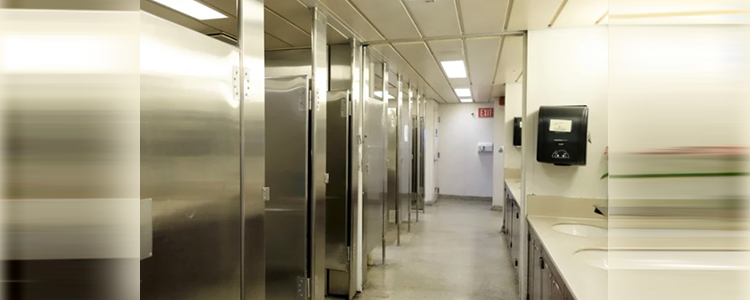EIS will consider health impacts in Washington, rail and tanker traffic impacts across the region, and impacts of coal burning in Asia
From the Washington Environmental Council , Power Past Coal and RE-sources
[On July 31, 2013], the U.S. Army Corps of Engineers, the Washington State Department of Ecology, and Whatcom County announced the scope of their joint Environmental Impact Statement (EIS) for the proposed coal export terminal at Cherry Point, in northwest Washington State. If built, it would be the largest coal export terminal in North America, exporting up to 48 million metric tons of coal per year to Asia. The proponents of the terminal include Peabody Energy, SSA Marine, and Goldman Sachs.
The agencies will take a broad look at the impacts of the proposed terminal through their environmental review, which will include: human health impacts from coal dust around the terminal and in communities along the rail line, marine traffic impacts, rail traffic impacts, greenhouse gas emissions from burning the exported coal in Asia, and cumulative impacts from the second proposed terminal in the state–Millennium Bulk Terminal in Longview, Washington.
“This scope is a reflection of Northwest values – the depth and breadth of the scope is absolutely on target and appropriate given the impacts this project would have on our way of life,” said Cesia Kearns, campaign director for the Power Past Coal campaign, a coalition of hundreds of businesses, health experts, community organizations and environmental and faith groups. “I applaud Washington’s leadership for using the full scope of their authority to examine this project carefully and urge Oregon to do the same. Coal is the dirtiest fossil fuel by far and we need fully evaluate what coal export would cost Northwest communities.”
As the scope of the EIS was being considered, the agencies heard from an unprecedented number of people – over 125,000 comments – at seven hearings throughout the state and through written comments. Concerns included: traffic congestion caused by long coal trains; economic impacts to local communities; health impacts of coal dust and diesel pollution; increased risk to the Salish Sea and the coast from increased coal tanker traffic; and climate pollution caused by burning coal.
Cherry Point is one of three remaining coal export proposals in Washington and Oregon; three proposals have been pulled off the table in the last year. The Cherry Point terminal would result in up to 18 coal trains per day traveling through Washington, Montana and Idaho carrying coal from the Powder River Basin.
“It is extremely heartening that the scope for the Cherry Point coal export proposal will consider increased train traffic in Montana. Montanans spoke out about the health, safety, financial and environmental impacts we will feel and our voices were heard,” said Jeannie Brown, a member of Northern Plains Resource Council, who lives 280 feet from the coal-bearing railroad tracks in Belgrade. “However, we are disappointed by the U.S. Army Corps of Engineers completely ignoring the effects of coal mining in Montana and Wyoming.”
Threats from mining in the Powder River Basin would be exacerbated if the proposed Gateway Pacific coal export terminal is permitted. Local drinking water supplies are at risk from contamination of toxic heavy metals like arsenic, cadmium, and selenium. Additionally coal mining wreaks havoc on biodiverse landscapes, and destroys wildlife habitat.
The scoping announcement comes on the same day as project proponent SSA Marine reached a settlement agreement with RE Sources to resolve the lawsuit stemming from SSA Marine’s illegal clearing on sensitive wetlands and sacred ground to build five miles of road through forest at Cherry Point.
“Today’s announcement lays out the thorough evaluation that this project deserves,” said Crina Hoyer, Executive Director of RE Sources for Sustainable Communities. “It’s heartening the review will look at the sweeping impacts of transporting millions of tons of coal through the Northwest each year and what that will mean for the health of our communities. As we’ve seen from the proponent’s actions, they deserve the highest level of scrutiny, as they say one thing and do another.”
As the EIS moves ahead for the Cherry Point proposal, scoping begins soon for another coal export proposal in Longview, Washington. Hearings for that proposal will be held across Washington in September and October. Communities affected by a third proposal, the Morrow Pacific project along the Columbia River in Oregon, do not benefit from the same leadership exercised by Washington as no state-level Environmental Protection Act exists. These communities are calling on Governor Kitzhaber and federal leadership to ensure that Oregon be held at least to the same standards as Washington and that the Army Corps conduct a full Environmental Impact Statement for the Morrow Pacific project.
If proponents built all three terminals in Oregon and Washington, it would mean up to 100 million metric tons of coal being exporting every year, and up to 40 trains per day traveling through many rail-line communities like Missoula, Montana and Spokane, Washington.
The Department of Ecology has put together a comprehensive FAQ document, online here: 2013/07/GPT-FAQ-7-30-13.pdf
Thanks to Donna Riordan, OrcasNoCoalition
**If you are reading theOrcasonian for free, thank your fellow islanders. If you would like to support theOrcasonian CLICK HERE to set your modestly-priced, voluntary subscription. Otherwise, no worries; we’re happy to share with you.**







